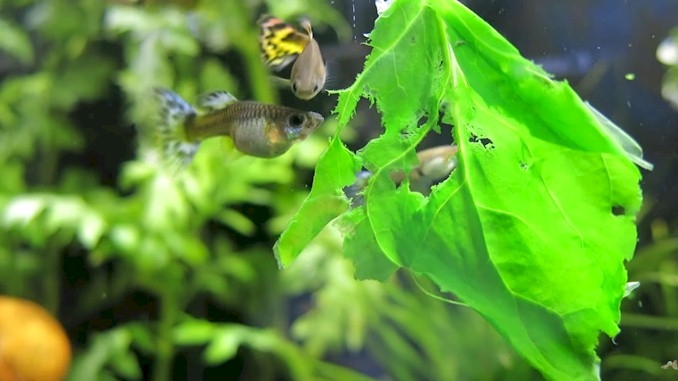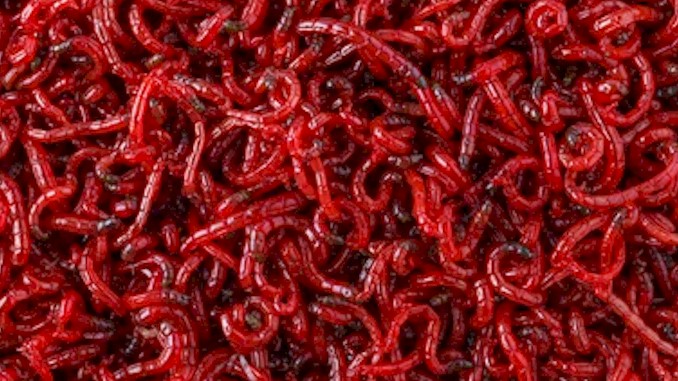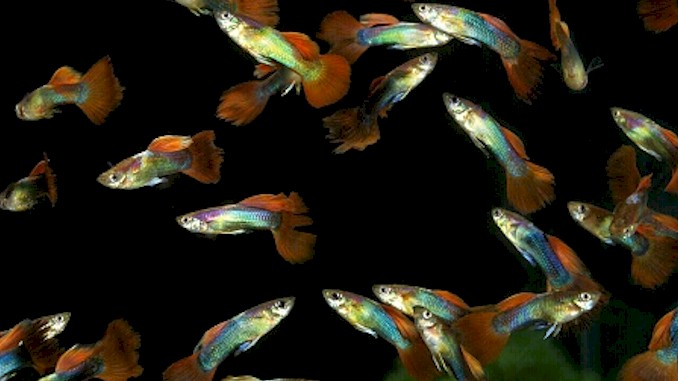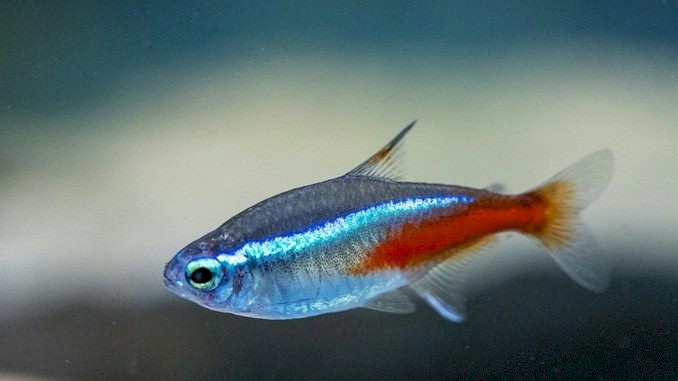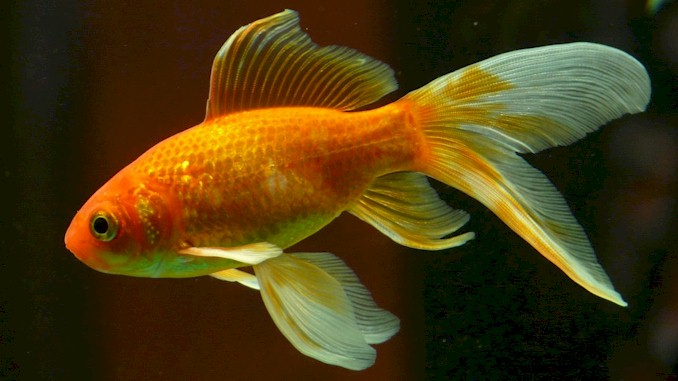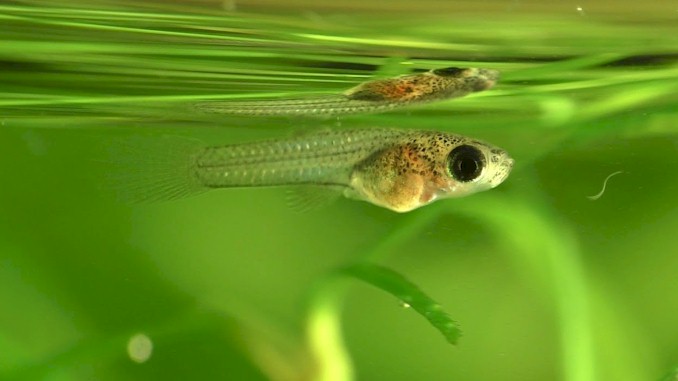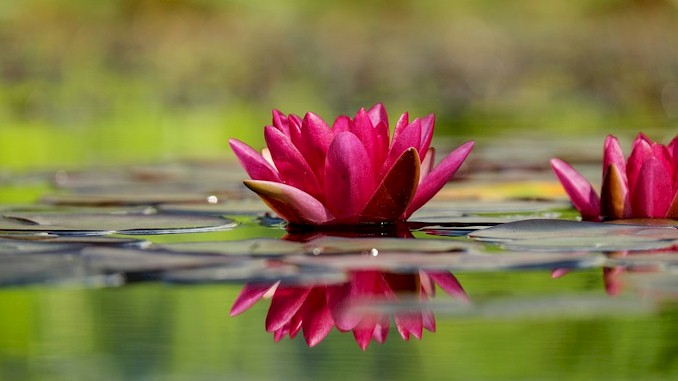Why Guppies Not Eating-Common Causes And Solutions
If you are a guppy owner, you may have noticed that sometimes your fish refuse to eat. This can be very frustrating and worrying, as you wonder what is wrong with your guppy and how to fix it. In this blog post, I will explain why guppies stop eating and what you can do to help them. I will share with you some of the most common causes of guppy appetite loss and how to solve them. By the end of this post, you will know how to make your guppy happy and healthy again.
Guppies are not eating for common reasons, such as stress, disease, poor water quality, overfeeding, boredom, labor, or expired food. Depending on the cause, guppy appetite loss can be temporary or chronic and may lead to weight loss, weakness, or death.
If you are worried about your guppy not eating, don’t panic. There are many things you can do to help your fish regain their appetite and enjoy their food again. In the following sections, I will go into more detail about each of the possible causes of guppy appetite loss and how to address them. I will also give you some tips on how to feed your guppy properly and what to do if your guppy still refuses to eat. By following my advice, you will be able to keep your guppy healthy and happy for a long time.
8 Common Causes of Guppies Not Eating
Guppies are usually voracious eaters who will eagerly devour any food you offer them. However, sometimes they may lose their appetite and ignore their food. This can be a sign of a serious problem that needs your attention and intervention.
As I mentioned earlier, guppies may stop eating for various reasons. Some of these reasons are related to the food itself, while others are related to the tank environment or the guppy’s condition. In this section, I will go over some of the most common causes of guppy appetite loss and how they affect your fish.
1. Expired Food
Feeding your guppies expired food will always backfire immediately. Expired food may have lost some of its nutrients or become contaminated with bacteria or fungi. This can make your guppy sick or simply uninterested in eating. Always check the expiration date of your fish food and store it properly to avoid this problem.
2. Poor-Quality Food
The food you give to your guppy should provide it with specific nutrients that are essential for its health and well-being. If the food is low-quality or lacks some of these nutrients, your guppy may reject it. You can get sub-standard food from dealers who sacrifice quality for affordability. Always buy high-quality food from reputable brands and sources that meet your guppy’s dietary needs.
3. High Ammonia Levels
Ammonia is a toxic substance that accumulates in your tank as a result of fish waste, uneaten food, and decaying plants. High ammonia levels can cause serious damage to your guppy’s gills, eyes, skin, and internal organs. This can make your guppy stressed, sick, or even die. To prevent ammonia poisoning, you should change at least 50% of your tank water every week and use a good filter system that can remove ammonia effectively.
4. Suboptimal Temperature
Guppies are tropical fish that prefer warm water temperatures between 72°F and 82°F (22°C and 28°C). If the water temperature is too low or too high for their comfort zone, they may become stressed or lethargic. This can affect their metabolism and appetite. To maintain a stable temperature in your tank, you should use a heater and a thermometer and avoid placing your tank near windows or vents that can cause temperature fluctuations.
5. Inadequate Male to Female Ratio
Guppies are livebearers that reproduce very quickly. Male guppies are constantly chasing female guppies to mate with them. This can cause stress and exhaustion for both sexes. If you have too many males in your tank compared to females (the ideal ratio is one male for every three females), they may harass each other or ignore their food. To balance the male to female ratio in your tank, you should separate some males into another tank or give them away to other hobbyists.
6. Bullying
Guppies are generally peaceful fish that get along well with each other and other species. However, sometimes they may bully each other over territory, food, or mates. This can cause stress and injury for the victimized fish who may hide away from their aggressors or lose their appetite. To prevent bullying in your tank, you should provide enough space and hiding places for all your fish and avoid keeping aggressive fish with guppies.
7. Labor
Female guppies can give birth every month if they are healthy and well-fed. Labor is a stressful process that can last several hours. During this time, female guppies may stop eating as they focus on delivering their fry (baby fish). This is normal and not a cause for concern as long as they resume eating after giving birth. You should provide a separate breeding box or tank for pregnant females so they can give birth safely without being disturbed by other fish.
8. Stress
Stress is a common factor that can affect any living creature’s appetite including humans. A stressed guppy is likely to have low appetite. Causes of stress in a guppy include changing a new tank, poor water conditions, overcrowding, bullying, disease, labor, etc. Stress weakens all parts of a guppy’s health and makes it more susceptible to diseases. To reduce stress in your guppy’s system you should provide them with plenty of places to hide, maintain good water quality, feed them properly, etc.
Above are some of the most common causes of why your guppies are not eating. After you understand these causes, you will be able to identify them quickly if your guppies present any symptoms of appetite loss, then take the proper action to deal with it.
How to Get Your Guppies to Eat
Now you know the most common reasons that causes your guppies not eating. If you run into this situation, it’s time to take action to deal with it. Here, I am going to give you some general guide in case you needed:
Choose the Right Food
Guppies are omnivorous fish that need a balanced diet of both animal and plant-based foods. They also need a variety of foods to prevent boredom and nutritional deficiencies. You should choose high-quality flake food that contains both protein and vegetable matter as a basic daily food supply.
Flake food intended for tropical fish often include natural color enhancers that will make your guppies more colorful.
And, you should also supplement their diet with live or frozen foods such as baby brine shrimp, blood worms, mosquito larvae, earthworms, daphnia, tubifex worms, etc. These foods contain extra nutrients and stimulate their natural hunting instincts.
Some vegetable matter are necessary for your guppies, such as lettuce, spinach, zucchini, cucumber, peas, etc. These foods aid their digestion and provide them with vitamins and minerals. You should avoid feeding your guppies pellets as they are too hard for their small mouths.
Feed Them Properly
Feeding your guppies properly is crucial for their health and well-being. You should feed them once or twice per day with a small amount of food that they can finish within 20–40 seconds.
Do not overfeed them as this can cause obesity, constipation, water pollution, and disease.
Guppies will continue to eat or search for food even when they are full so do not be fooled by their apparent hunger. If you see any uneaten food in the tank after feeding time remove it immediately with a net or siphon. You should also vary their diet and not feed them the same thing every day. This can help stimulate their appetite and interest in food.
Reduce Stress
Stress is a common factor that can affect your guppy’s appetite and well-being. There are many causes of stress in guppies such as poor water conditions, inadequate water temperature, aggressive tankmates, overcrowded tank, labor, etc.
You should try to reduce stress in your guppy’s system by providing them with adequate water conditions and parameters, enough space and hiding places, peaceful tankmates, a separate breeding box or tank for pregnant females, etc. I provide some details about this below, check it if you need them.
What to Do If Your Guppy Still Refuses to Eat
If you have tried everything to make your guppy eat but they still refuse to do so, you may be wondering what else you can do. Sometimes, guppies may stop eating for no apparent reason or because of an underlying health issue that is not visible to the eye. In this case, you should take some steps to help your guppy recover their appetite and health.
Check for Signs of Disease
Sometimes, guppies may stop eating because they are sick or infected with parasites. Some common diseases that affect guppies are Fin Rot, Ich, Fungus Infections, Dropsy, etc. You should check your guppy for any signs of disease such as white spots, red streaks, swollen belly, clamped fins, etc.
If you notice any of these signs, you should isolate your guppy in a quarantine tank and treat them with the appropriate medication. You should also check your water quality and parameters and make sure they are optimal for your guppy’s health.
Try Different Foods
Sometimes, guppies may stop eating because they are bored with their food or they don’t like it. You should try offering them different types of foods such as flake food, live food, frozen food, vegetable matter, etc. You should also vary their diet and not feed them the same thing every day. This can help stimulate their appetite and interest in food.
You should also avoid overfeeding them or leaving uneaten food in the tank as this can cause water pollution and disease.
Reduce Stress
As I talked about this topic above, this is the culprit you should look for when your guppies present the symptom of loss of their appetites. I will provide some details below for your information, you can check them there.
Consult a Vet
If none of the above methods work and your guppy still refuses to eat after several days, you should consult a vet who specializes in fish health.
They can examine your guppy and diagnose any possible health issues that may be causing their appetite loss. They can also prescribe some medications or supplements that can help your guppy recover their appetite and health.
How to Check the Expiration Date of Your Fish Food
One of the reasons why guppies may stop eating is because they are fed with expired food. Expired food may have lost some of its nutrients or become contaminated with bacteria or fungi.
This can make your guppy sick or simply uninterested in eating. Therefore, it is important to check the expiration date of your fish food and store it properly to avoid this problem.
How to Find the Expiration Date
Most fish food packages have both a batch number and an expiration date printed on them. The expiration date tells you how long the food can be used safely without losing its nutritional value or becoming spoiled.
This does not, however, imply that you must discard the food on the specified day. If you store the food away from moisture, it can survive for up to three months after the expiration date. But, before giving it to your guppy, you should carefully inspect it for symptoms of decomposition such as mildew, insects, a poor odor, or a change in color.
How to Store Fish Food Properly
The best way to store fish food properly is to keep it in a cool, dry, and dark place away from sunlight and heat sources. You should also use airtight containers or zip lock bags that can prevent moisture and air from getting inside.
You can also divide the food into smaller portions and freeze them, then thaw them when needed. This can help preserve the nutrients and freshness of the food longer. You should also avoid overbuying fish food that you will not use within a few months, as this will only waste your money and space.
How to Dispose of Expired Fish Food
If you find that your fish food has expired or spoiled beyond use, you should dispose of it properly and safely. Do not feed it to your guppy or any other animal as this can harm them.
Do not flush it down the toilet or sink as this can clog your pipes or pollute your water system. Do not throw it in your garden or compost bin as this can attract pests or cause diseases.
The best way to dispose of expired fish food is to seal it in a plastic bag and throw it in your trash bin.
How Long Can a Guppy Go Without Eating
Guppies are hardy and adaptable fish that can survive in various conditions. However, they still need proper nutrition to grow, thrive, and stay healthy. Feeding your guppies regularly is an essential part of their care.
But what if you have to leave your guppies for a few days or weeks? How long can they go without eating? And what can you do to ensure their well-being while you are away?
Guppy can last for two weeks without eating
How long a guppy can go without eating depends on several factors, such as their age, size, health, and water quality.
As a general rule, healthy adult guppies can survive without food for up to two weeks. However, this does not mean that you should starve your guppies for that long. This is only an estimate of their maximum survival time in case of emergencies or unavoidable situations.
Younger guppies and guppy fry have less fat reserves and body mass than adult guppies. They cannot last as long without food as their older counterparts. Guppy fry can only survive for up to three days without food. Therefore, if you have young guppies in your tank, you should not leave them unattended for more than a couple of days.
Preparation for leaving
If you know that you have to leave your guppies for a short period of time (a few days or a week), there are some things you can do to prepare your tank and your fish before you go. These include:
- Do filter maintenance: A few days before you leave, clean your filter and remove any debris or waste that may have accumulated in it. This will help keep your water quality stable and prevent ammonia spikes while you are away.
- Do a water change: One day before you leave, do a large water change (50–70%). This will remove any excess nitrates and other toxins from the water and give your guppies a fresh environment to live in. You can also add some beneficial bacteria products (such as API Quick Start) to boost the biological filtration in your tank.
- Check the water temperature: Guppies prefer warm water temperatures between 72°F and 82°F (22°C and 28°C) . If the water temperature is too low or too high for their comfort zone, they may become stressed or lethargic. To maintain a stable temperature in your tank, use a heater and a thermometer and avoid placing your tank near windows or vents that can cause temperature fluctuations. You should also acclimate your guppies slowly to any new water temperature changes to avoid shock.
- Feed them well: On the day of your departure, feed your guppies well with high-quality flake food that contains both protein and vegetable matter. You can also offer them some live or frozen foods such as brine shrimp, blood worms, mosquito larvae, etc. These foods will provide them with extra nutrients and energy that will last them longer. However, do not overfeed them or leave any uneaten food in the tank as this can cause water pollution and disease. Feed them only as much as they can eat within 20–40 seconds.
- Use an automatic feeder: If you are leaving your guppies for more than a few days (up to two weeks), you may want to use an automatic feeder to feed your guppies while you are away. An automatic feeder is a device that dispenses a preset amount of food at a preset time interval. You can fill it with flake food or pellets and set it to feed your guppies once or twice per day. However, you should test the feeder before you leave to make sure it works properly and does not overfeed or underfeed your guppies. You should also clean the feeder regularly to prevent mold or bacteria growth.
- Ask someone to check on your tank: If possible, ask a friend, family member, or neighbor who knows about fishkeeping to check on your tank and your guppies while you are away. They can monitor the water quality and temperature, feed your guppies if needed, remove any dead fish or plants, and alert you if there is any problem with your tank or fish. You should give them clear instructions on how to care for your guppies and what to do in case of emergencies.
How to Deal with Stress in Guppies
Stress is a common problem that can affect any living creature, including guppies. Stress can weaken your guppy’s immune system and make them more prone to diseases and infections. Stress can also affect your guppy’s behavior and appearance, making them less active, less colorful, and less hungry. Therefore, it is important to know how to deal with stress in guppies and how to prevent it from happening.
Signs of Stress
You can tell if your guppy is stressed by looking for some signs such as:
- Lethargy: Your guppy will have no energy and will move very slowly or not at all. They may also sleep at the bottom of the tank or hide away from other fish.
- Loss of Appetite: Your guppy will show no interest in any food you offer them. They may nibble at it but spit it out or ignore it completely.
- Erratic Swimming Pattern: Your guppy will swim in a very unusual manner, such as hitting the tank walls, swimming in circles, darting around, or gasping at the surface of the water.
- Discoloration: Your guppy will lose its natural and beautiful colors. They may become pale, dull, or faded.
- Disease: Your guppy may develop various diseases that are caused by stress or make stress worse. Some common diseases that affect stressed guppies are fin rot, ich, fungus infections, etc.
- Injury: Your guppy may injure themselves by scratching against objects in the tank or biting their own fins. They may also be injured by other fish that bully them or compete with them for food or space.
Causes of Stress
There are many factors that can cause stress in guppies. Some of these are:
- Poor Water Conditions: Guppies need clean and well-maintained water conditions to thrive. Poor water conditions such as high ammonia levels, low oxygen levels, unstable pH levels, etc., can harm your guppy’s health and cause stress.
- Inadequate Water Temperature: Guppies are tropical fish that prefer warm water temperatures between 72°F and 82°F (22°C and 28°C). If the water temperature is too low or too high for their comfort zone, they may become stressed or lethargic.
- Aggressive Tankmates: Guppies are generally peaceful fish that get along well with each other and other species. However, sometimes they may be bullied by other fish that are larger, faster, or more aggressive than them. This can cause stress and injury for your guppy who may try to escape or hide from their aggressors.
- Overcrowded Tank: Guppies need enough space to swim freely and comfortably in their tank. If you have too many fish in your tank compared to its size, they may compete for food, space, and oxygen. This can cause stress and aggression among your guppies who may fight with each other or become territorial.
- Labor: Female guppies can give birth every month if they are healthy and well-fed. Labor is a stressful process that can last several hours. During this time, female guppies may stop eating as they focus on delivering their fry (baby fish). This is normal and not a cause for concern as long as they resume eating after giving birth.
How to Reduce Stress
There are some things you can do to reduce stress in your guppy’s system and prevent it from happening in the first place. Some of these are:
- Provide Adequate Water Conditions: You should change at least 50% of your tank water every week and use a good filter system that can remove ammonia effectively. You should also test your water regularly for ammonia, nitrite, nitrate, pH, and temperature levels and adjust them if needed. You should also avoid overfeeding your guppies or adding any chemicals or medications that are not necessary for your tank.
- Provide Appropriate and Stable Water Temperature: You should use a heater and a thermometer to maintain a stable temperature in your tank between 72°F and 82°F (22°C and 28°C). You should also avoid placing your tank near windows or vents that can cause temperature fluctuations. You should also acclimate your guppies slowly to any new water temperature changes to avoid shock.
- Provide Enough Space and Hiding Places: You should provide enough space for all your fish to swim freely and comfortably in their tank. The general rule is one gallon of water per inch of fish. You should also provide enough hiding places for your guppies such as live plants, rocks, driftwood, caves, etc., where they can feel safe and secure from predators or bullies. Hiding places also help reduce aggression among guppies by creating territories.
- Avoid Aggressive Tankmates: You should avoid keeping aggressive fish with guppies such as cichlids, bettas, barbs, etc., that may chase or attack them. You should also keep an eye on the male to female ratio in your tank (the ideal ratio is one male for every three females), as too many males may harass each other or the females over mating rights. You should separate some males into another tank or give them away to other hobbyists if needed.
- Feed Your Guppies Properly: You should feed your guppies once or twice per day with a small amount of food that they can finish within 20–40 seconds. You should offer them a variety of foods such as flake food, live food, frozen food, vegetables.
- Provide a separate breeding box or tank: You should provide a separate breeding box or tank for pregnant females so they can give birth safely without being disturbed by other fish. If you choose a separate breeding tank, remember to keep a good habitat in which you are sure all conditions I mentioned above are met.

